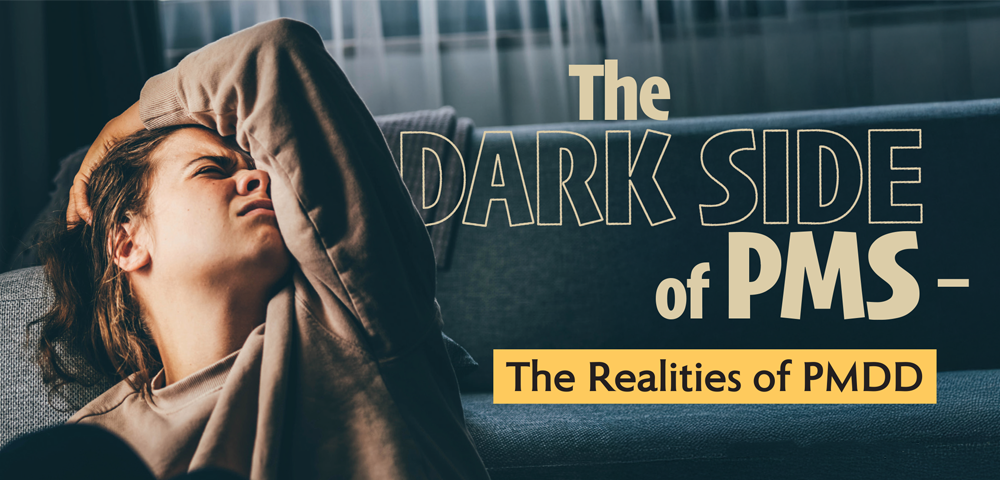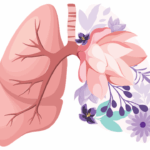
The good news? While research is still evolving, there are treatment options that can make a real difference.
In my practice, I’ve observed the horrors of premenstrual dysphoric disorder (PMDD). And, while it is often compared to PMS, the reality is that it is far more severe, so much so that it can be truly debilitating.
Women and girls who are affected experience a combination of emotional, cognitive, and physical symptoms tied to the natural hormonal shifts, particularly in estrogen and progesterone, that occur in the second half of the menstrual cycle, known as the luteal phase.
Despite its impact, getting a diagnosis remains a significant hurdle, and that’s because the jury is still out on whether PMDD is a hormonal condition, a psycho-logical one, or both. But there’s also a deeper issue at play: the long-standing medical tendency to dismiss or downplay women’s experiences, especially when it comes to menstrual health.
There’s a persistent myth that intense pain, crushing fatigue, and emotional turmoil during your period are just “part of being a woman.” Many of us have been told it’s normal – that it’s something we have to endure. But let’s be clear: while hormonal shifts are a natural part of the menstrual cycle, suffering is not something you should accept.
If you’ve ever felt like your period brings a tidal wave of depression, rage, anxiety, or physical symptoms so severe they disrupt your daily life, you’re not alone. Although it affects significantly fewer women than PMS, for the 3–8% of women of reproductive age who do experience it, PMDD is a serious condition that deserves attention, compassion, and proper treatment. The good news? While research is still evolving, there are treatment options that can make a real difference.
Scientists are discovering that PMDD may be linked to how certain brains respond to normal hormonal fluctuations. Some people’s brains are more sensitive to hormonal shifts, which can impact the chemical messengers that regulate mood, especially serotonin and GABA. That’s why treatments that moderate neurotransmitter and hormone levels have shown promise and can help manage some symptoms.
From a pharmaceutical approach, selective serotonin reuptake inhibitors (SSRIs) – a class of antidepressants – and certain forms of birth control have shown promise. SSRIs can be taken either daily or just during the luteal phase, and specific hormonal contraceptives can help manage symptoms throughout the entire menstrual cycle. That said, many women find that these medications don’t work, or that they even worsen their symptoms.
Finding what works is deeply personal and often frustrating, but it’s essential to know that natural and integrative medical options exist. One plant-based option that’s gained traction is vitex (also known as chasteberry). Vitex supports a balance of progesterone and estrogen, similar to how an adaptogen balances cortisol. It can help ease both the emotional and physical symptoms of PMDD. In a recent study, it was found that even though SSRIs were more effective for mood-related symptoms, vitex outperformed them at reducing physical discomfort in women with PMDD.
In addition to vitex, supplements like magnesium, vitamin D, and B vitamins, especially vitamin B6, all support PMDD and its symptoms. 5-HTP, a precursor to serotonin, along with GABA and L-theanine, which encourage healthy GABA levels, may support PMDD at the level of the brain.
Acupuncture is another route some women explore. While rigorous studies on PMDD and acupuncture are still limited, many patients report significant improvements. A balanced, nutrient-dense diet can help ease symptoms and promote overall hormone health. Incorporating more whole foods, such as fruits, vegetables, whole grains, healthy fats, and foods rich in magnesium, like leafy greens and nuts, can help alleviate mood swings.
It is important to know there’s no one-size-fits-all solution and to discuss supplements with your health care practitioner to find out what might work best for you. The bottom line? PMDD is real, it’s serious, and you deserve care that takes your symptoms seriously. Whether through medication, herbs, acupuncture, or a combination of approaches, healing is possible – and you don’t have to do it alone.












